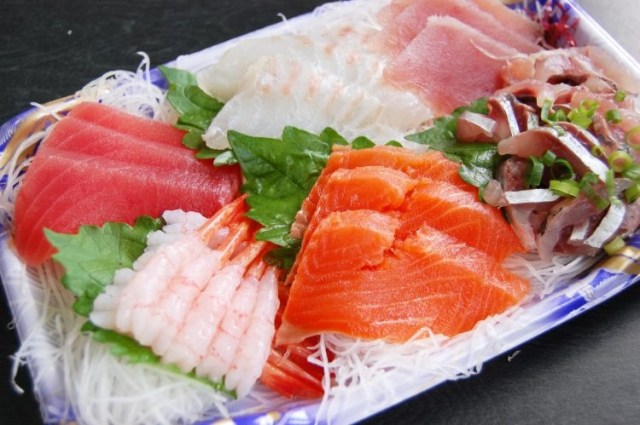Is the AKB48-style idol singer promotion system limiting Japanese music’s global appeal?

Prominent music critic puts the blame on idol “hostess club” tactics for Japan’s lack of “competitive ability,” but fans say that’s missing the point.
Idol music is a unique part of the Japanese recording industry, and not just because of how it sounds. It’s marketed with a completely open acknowledgement that the primary appeal for fans is the performers’ image, not the songs’ sounds, leading to practices such as tying chances of winning tickets to not just concerts, but also non-musical meet-and-greets like handshake events, to CD purchases, with the more duplicate copies you buy the better your odds of winning become.
That’s been the norm for idol music for a decade-plus now, with mega group AKB48 and its associated three-letter-48-named sister units the most successful examples. But Reiko Yukawa, a Japanese music critic who started her career discussing jazz in the 1960s, thinks the idol system has had a detrimental effect in Japanese music’s global appeal. It’s a lament the 86-year-old Tokyo native, who also has numerous credits as a lyricist, voiced back in 2018 while comparing the international success of K-pop groups to those of Japanese idols, and this month she tweeted a belated follow-up to those thoughts.
今更ですが、日本の『会いに行けるアイドル』と言う国内循環型のキャバクラ・システムが、日本の音楽の国際競争力を失くす、と言うと、業界誌はいっさい載せてくれなかったし、バァさん、焼き餅焼かない方が良いよ、とさえ言われました(笑) https://t.co/bPnpPKu3d3
— 湯川れい子 (@yukawareiko) June 5, 2022
“Japan’s domestic-circulation hostess club system that they call ‘idols who you can go to meet in-person’ has caused the loss of Japanese music’s international competitive capability,” tweeted Yukawa, and more than a few commenters agreed with her, posting replies such as:
“I think you’re exactly right.”
“The sins of [AKB48 producer] Yasushi Akimoto are immense.”
“’Hostess club system’ is the perfect way to describe it.”
“I’ve thought the same thing. Sometimes I want to ask idol groups ‘Just what exactly is it that you’re selling?” The actual musical element has become secondary.”
“At some point, their aim went from figuring out what they could do to sell music to finding what they could do to sell CDs…The music is being treated like the shredded daikon radish on a plate of sashimi.”
▼ Sure, no one is upset about the shredded underneath those sashimi slices, but they probably aren’t going to eat very much of the radish either.

On the other side of the debate, though, are idol fans, or at least non-detractors, who feel that idol sales practices aren’t to blame for any perceived shortcomings of the performance of Japanese music as a whole in overseas markets, and that boosting the global “competitive capabilities” of Japanese music isn’t the goal of idol music in the first place.
“Since when is music supposed to be about competition?”
“This kind is stuck in the last century, like when the first wave of Japanese rock bands said ‘We have to sing in English only to be big around the world.’”
“Japan is the second-largest music market in the world, and so there’s a history of making music and sales systems that appeal to Japanese people.”
“So if AKB48 disappeared, would that make Japanese music more competitive? Is Yasushi Akimoto going around putting pressure on other recording companies so they can’t make music in other non-idol genres?”
“If there wasn’t a demand for idol-style promotions in Japan, they would have already stopped doing them. Idols are different from other types of musicians anyway.”

Yukawa probably has a point, in the sense that Japanese idol music is a tough sell to mainstream overseas markets. Singers who owe their popularity more to their image than their vocal talents aren’t unique to Japan, but the demure and supportive personas that form the foundation of the idol genre are quite a bit different from the cool and powerful atmosphere that non-Japanese image-based performers more frequently cultivate.
At the same time, though, it’s pretty clear that idol music production companies are more interested in making their groups domestic successes than worrying about how they can make Japanese pop music in general more “competitive” outside their home market, especially when idol music is a niche even within the Japanese music industry. It’s also important to bear in mind that domestically the idol sales promotion system can be very effective, like when one of AKB48’s singles sold more than 2.5 million physical copies before it even hit store shelves. To be sure, a lot of those were duplicate copies bought by fans for the AKB48 general election ballots that came with the disc, but a sale is a sale. That sort of multiplier effect means that catering to the tastes of a single in-Japan super fan is as profitable as finding dozens, or even hundreds, of new overseas supporters, so we’re probably going to see idol promotions continue in the Japanese music industry until they stop working inside Japan.
Source: Maijitsu via Jin, Twitter/@yukawareiko (1, 2)
Top image: Pakutaso
Insert images: Free Sozai, Pakutaso
● Want to hear about SoraNews24’s latest articles as soon as they’re published? Follow us on Facebook and Twitter!
Credit:

0 comments: